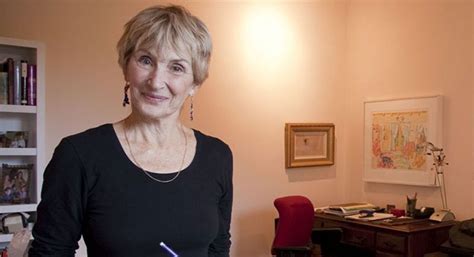A Quote by John Dryden
Thus, while the mute creation downward bend Their sight, and to their earthly mother ten, Man looks aloft; and with erected eyes Beholds his own hereditary skies.
Related Quotes
Are we lost, or are we found at last? On earth we strive for our various needs, because so goes the fundamental law of man. Aloft, at least for a little while, the needs disappear. Likewise the striving. In the thoughts of man aloft, food and evil become mixed and sometimes reversed. This is the open door to wisdom. Aloft, the earth is ancient and man is young, regardless of his numbers, for there, aloft he may reaffirm his suspicions that he may not be so very much. This is the gateway to humility.
Hasidism has a tradition that one of man's purposes is to assist God in the work of redemption by "hallowing" the things of creation. By a tremendous heave of his spirit, the devout man frees the divine sparks trapped in the mute things of time; he uplifts the forms and moments of creation, bearing them aloft into that rare air and hallowing fire in which all clays must shatter and burst. Keeping the subsoil world under trees in mind, in intelligence, is the least I can do.
The freedom of an individual depends upon that individual's freedom to alter his considerations of space, energy, time and life and his roles in it. If he cannot change his mind about these, he is then fixed and enslaved amidst barriers such as those of the physical universe, and barriers of his own creation. Man thus is seen to be enslaved by barriers of his own creation. He creates these barriers himself, or by agreeing with things which hold these barriers to be actual.
When the father dies, he writes, the son becomes his own father and his own son. He looks at is son and sees himself in the face of the boy. He imagines what the boy sees when he looks at him and finds himself becoming his own father. Inexplicably, he is moved by this. It is not just the sight of the boy that moves him, not even the thought of standing inside his father, but what he sees in the boy of his own vanished past. It is a nostalgia for his own life that he feels, perhaps, a memory of his own boyhood as a son to his father.
Now let's move on to the subject of how a real man treats his wife. A real man doesn't slap even a ten-dollar hooker around, if he's got any self-respect, much less hurt his own woman. Much less ten times over the mother of his kids. A real man busts his ass to feed his family, fights for them if he has to, dies for them if he has to. And he treats his wife with respect every day of his life, treats her like a queen - the queen of the home she makes for their children.
The believer is sensible of his infirmities, for it is supposed that he is wrestling under them. He sees, he feels, that he is not man enough for his work; that his own hands are not sufficient for him, nor his own back for his burden; this is what drives him out of himself to the grace that is in Christ Jesus. And thus he lies open to the help of the Spirit, while proud nature in unbelievers is left helpless.
In Islamic belief, knowledge is two-fold. There is that revealed through the Holy Prophet (s.a.s.) and that which man discovers by virtue of his own intellect. Nor do these two involve any contradiction, provided man remembers that his own mind is itself the creation of God. Without this humility, no balance is possible. With it, there are no barriers. Indeed, one strength of Islam has always lain in its belief that creation is not static but continuous, that through scientific and other endeavours, God has opened and continues to open new windows for us to see the marvels of His creation
As he walks away on his own two feet--the toddler's body-mind has reached its moment of perfection. The world is his and he the mighty conqueror of all he beholds.... As long as mother sticks around in the wings, the mighty acrobat confidently performs his trick of twirling in circles, walking on tiptoe, jumping, climbing, staring, naming. He is joyous, filled with his grandeur and wondrous omnipotence.
Man shouldn’t be able to see his own face – there’s nothing more sinister. Nature gave him the gift of not being able to see it, and of not being able to stare into his own eyes. Only in the water of rivers and ponds could he look at his face. And the very posture he had to assume was symbolic. He had to bend over, stoop down, to commit the ignominy of beholding himself. The inventor of the mirror poisoned the human heart.




































